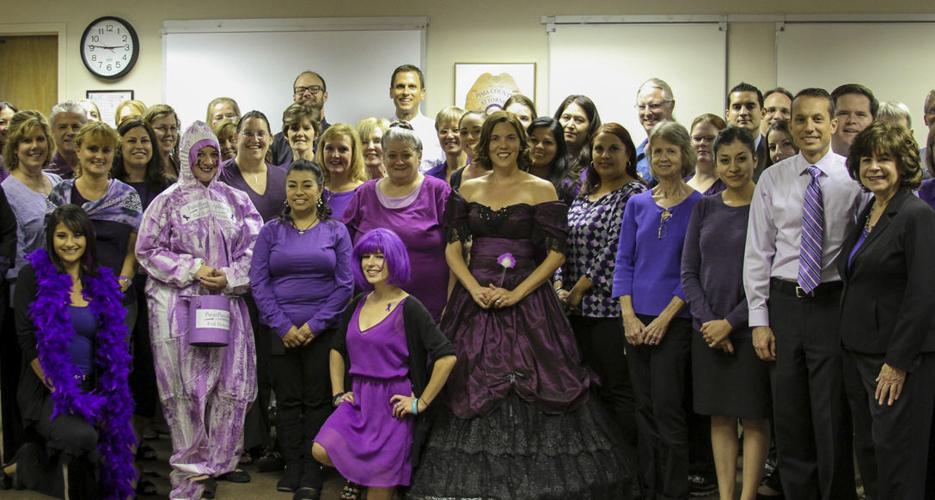October is celebrated for the blazing reds, oranges and golds of fall, but the Emerge! Center Against Domestic Abuse wants to add purple to the palette in honor of Domestic Violence Awareness Month.
“We always try to balance the fact that while the designation of October as Domestic Violence Awareness Month gives us the opportunity to spotlight the issue and highlight extra events, domestic violence is something that is happening every day year-round. We don’t want people to think that after the end of the month, you don’t have to worry about it until next year,” said Ed Mercurio-Sakwa, CEO of the center.
The nonprofit, which served nearly 6,000 survivors and their children last year and continues to see those numbers rise, works around-the-clock to promote awareness about the prevalence of domestic violence, according to Mercurio-Sakwa.
He attributes the increase in numbers to a growing partnership with local law enforcement to identify victims through risk assessments during responses to 911 calls.
“We know that many victims don’t reach out because of fear or shame, and if they are suffering from emotional or verbal abuse, that is not illegal. Many tactics that abusive partners use are effective in controlling a partner and are just as harmful to that partner in a broad sense, but they don’t fall under criminal statutes. So when you have law enforcement arriving in the midst of an incident, we want to make sure they are assessing who is at greatest risk and providing emergency access to services that folks may need,” said Mercurio-Sakwa.
Ultimately, Mercurio-Sakwa believes that promotion of Domestic Violence Awareness Month and affiliated events such as the annual Stuff-the-Bus with Sun Tran will help the public to learn more about the services available to victims while also providing much-needed practical support for the emergency shelter utilized by nearly 700 people each year.
“These people have fled their homes with nothing. They are starting from scratch and must try to rebuild their lives. The supplies that people drop off help us to meet their basic needs so they can be stabilized. Beyond the practical component, it also gives survivors hope that they are not in this alone and that the community cares enough to support them and give them a little bit of comfort and normalcy in the midst of what is otherwise a very chaotic and traumatic time,” Mercurio-Sakwa said.







